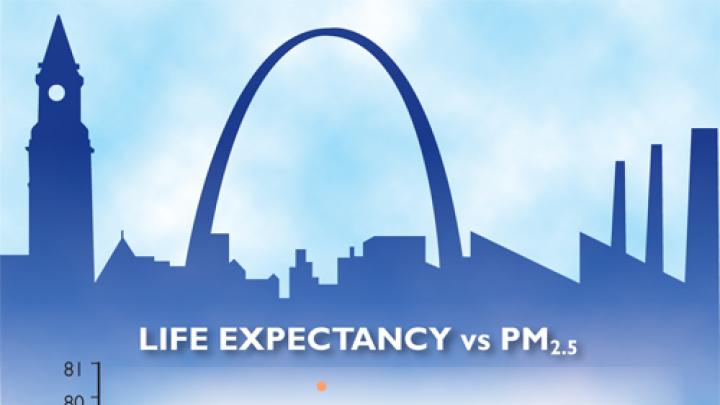When it comes to personal health, breathing is not like handwashing. Clean or dirty, like it or not, every day you breathe in 20,000 liters of air; you can't decide when to do it. But research has shown that the cleaner the air you breathe, the longer you will live. Investigators at the Harvard School of Public Health demonstrated that association in 1993 when they compared the average lifespan of residents in U.S. cities known for the worst air pollution with that of residents in cities with much cleaner air. Now some of the same researchers have published a paper demonstrating that federal regulations reducing concentrations of fine particles--those most hazardous to human health (PM2.5, or 2.5 microns in diameter)--have had a salutary effect on public health: adding five months to the average lifespan during the period from roughly 1980 to 2000 in the 51 metropolitan areas studied.
The recent investigations, which compiled data from a variety of earlier projects, used a different approach than the 1993 study. Rather than comparing one city to another, the researchers compared the evolving air quality of the respective metropolitan areas over time. Their findings validate the previous work.
During the roughly 20-year span studied, the overall average increase in life-span was just under three years. Although much of this gain was due to other factors--including greater use of statin drugs, reductions in smoking, the increased prevalence of defibrillators, better diets, and better healthcare during the period--the cities with the biggest improvements in air quality invariably saw the biggest improvements in life expectancy. Even in a city like Boston, which registered relatively cleaner air, generally good healthcare, and an increase of four years in life expectancy, cleaner air accounted for 10 percent of the gain.
In those cities with the largest improvements in air quality, the increase in lifespan attributable to cleaner air was 10 months. "It is a dramatic gain," says professor of environmental epidemiology Douglas Dockery, the paper's senior author, who chairs the department of environmental health. Given the small changes in the overall levels of these all-but-invisible particles (whose average concentration dropped fewer than 7 micrograms per cubic meter), he notes, "It is startling that we can detect this effect at all." Yet an analysis by the federal Office of Management and Budget has shown that the public-health benefits of controlling fine-particle pollution vastly outweigh the costs. As an editorial stated in the New England Journal of Medicine, in which the new findings appeared, the results are significant because they provide "direct confirmation of the population health benefits of mitigating air pollution...."








